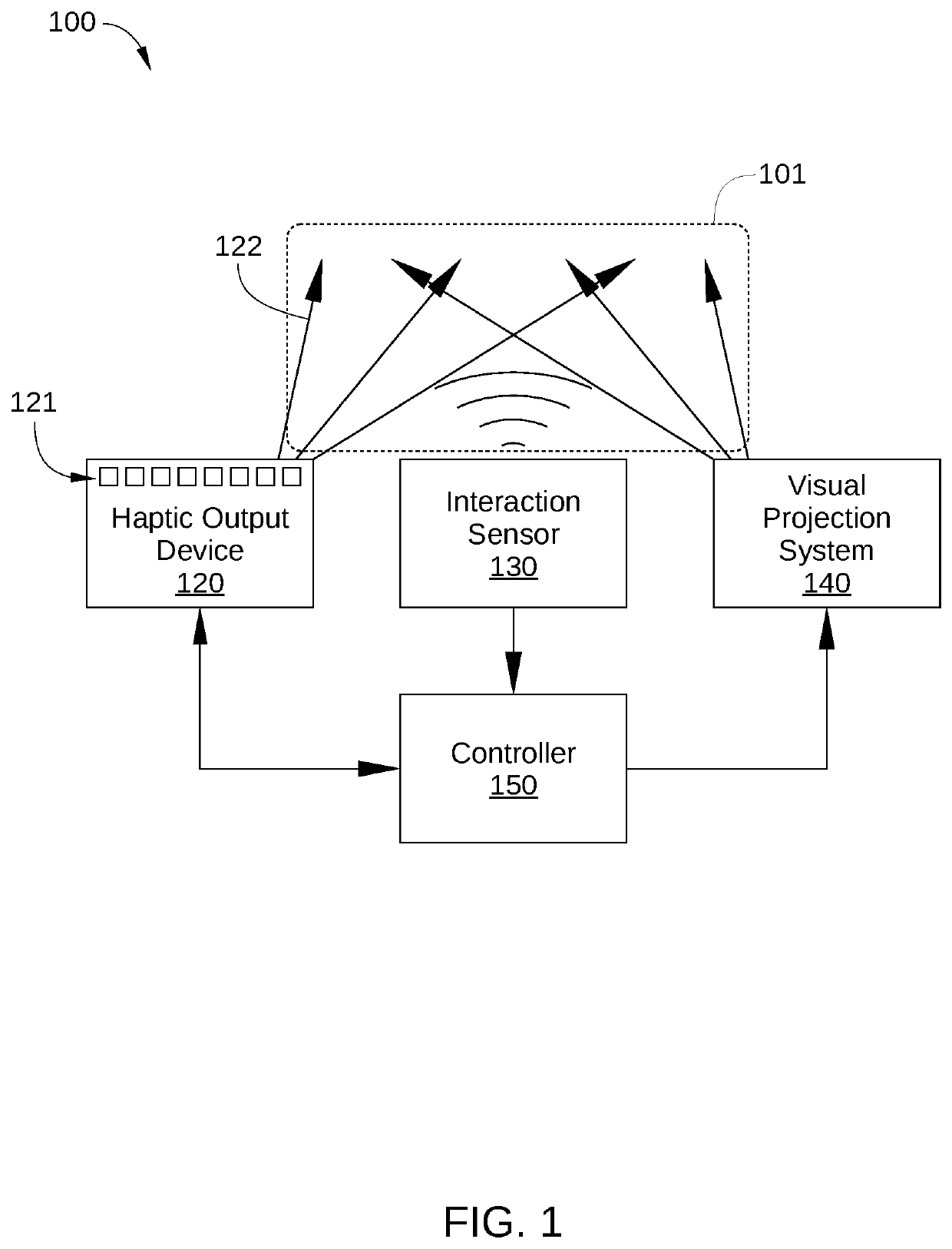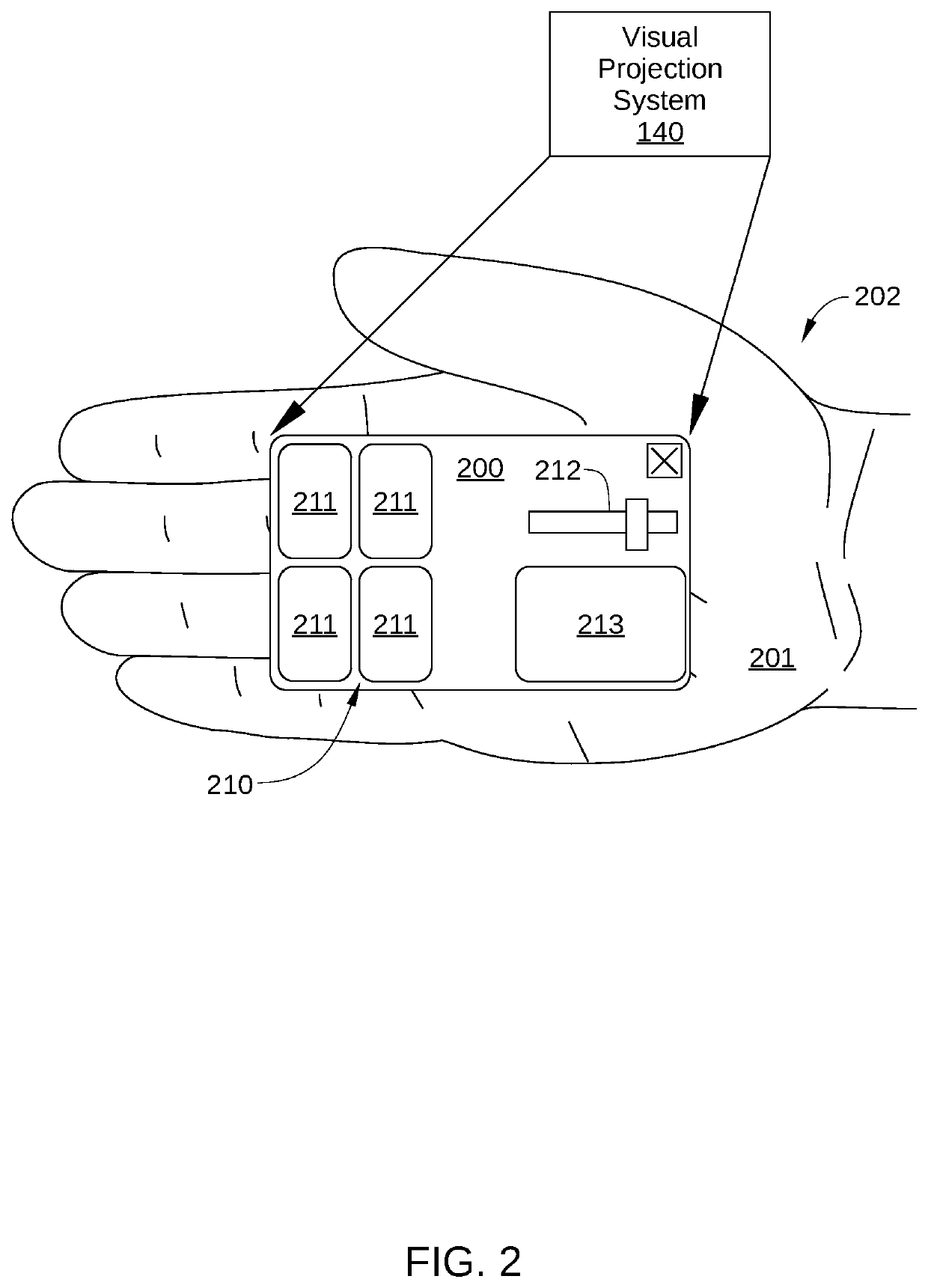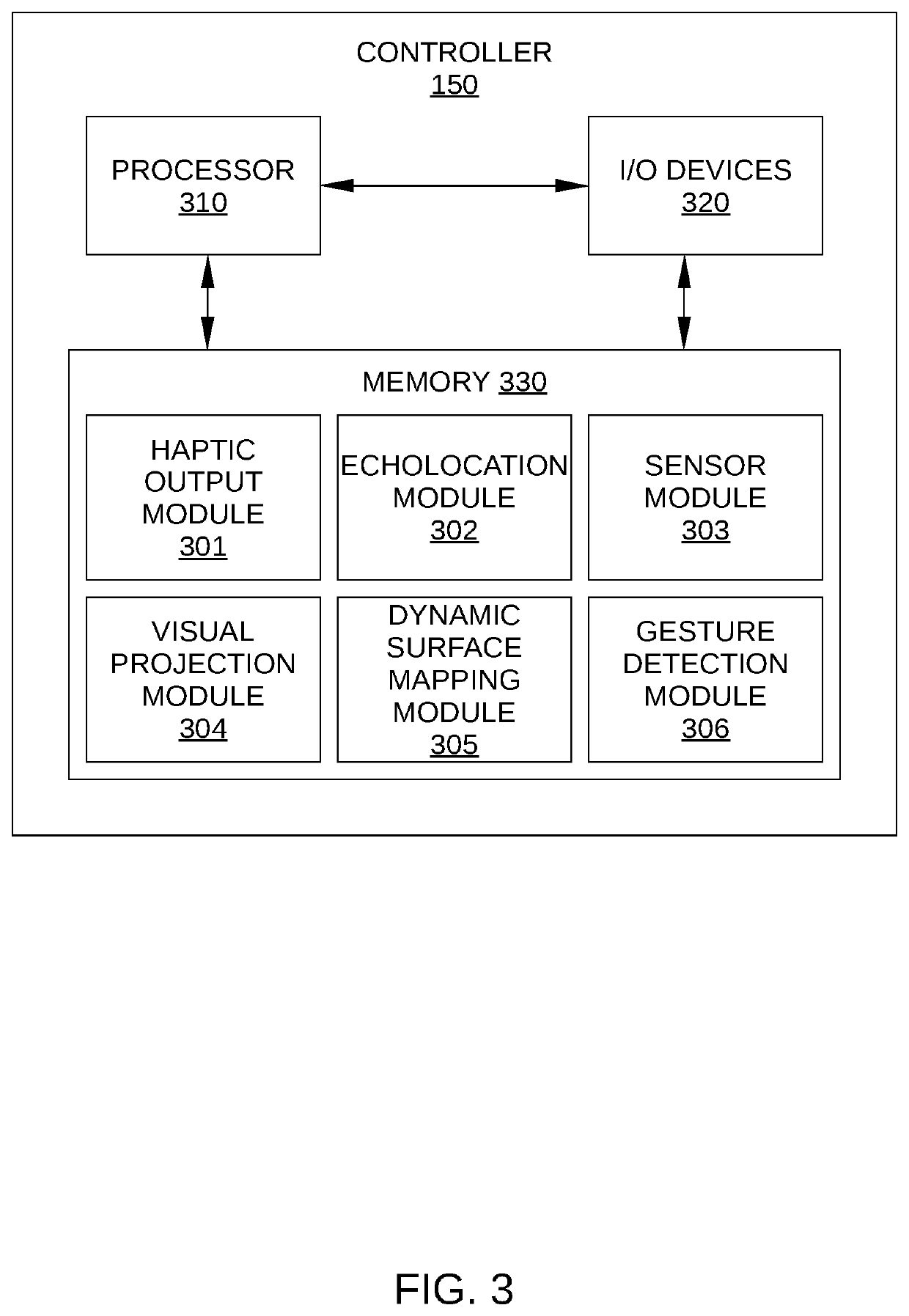Interaction system using collocated visual, haptic, and/or auditory feedback
a technology of auditory feedback and interaction system, which is applied in the field of user interfaces, can solve the problems of limiting the ability of users to interact with the device, and affecting the user's experience of the device,
- Summary
- Abstract
- Description
- Claims
- Application Information
AI Technical Summary
Benefits of technology
Problems solved by technology
Method used
Image
Examples
Embodiment Construction
[0001]Embodiments of the present disclosure relate generally to user interfaces and, more specifically, to an interaction system using collocated visual, haptic, and / or auditory feedback.
Description of the Related Art
[0002]Currently, touch-sensitive screens are commonly employed as the interface for interacting with consumer and hand-held display devices, such as smartphones, electronic tablets, wearable computing devices, and in-vehicle infotainment systems. A touch-sensitive screen enables a user to interact directly with what is displayed, rather than using a mouse, touchpad, or other such device, and allows a greater variety of inputs to a device than do mechanical input devices, such as buttons and switches. As a result, touch-sensitive screens have replaced most or all mechanical buttons, dials, keyboards, and sliders as the interface for interacting with a variety of devices.
[0003]One drawback to using a touch-sensitive screen as an input device is that performing an input re...
PUM
 Login to View More
Login to View More Abstract
Description
Claims
Application Information
 Login to View More
Login to View More - R&D
- Intellectual Property
- Life Sciences
- Materials
- Tech Scout
- Unparalleled Data Quality
- Higher Quality Content
- 60% Fewer Hallucinations
Browse by: Latest US Patents, China's latest patents, Technical Efficacy Thesaurus, Application Domain, Technology Topic, Popular Technical Reports.
© 2025 PatSnap. All rights reserved.Legal|Privacy policy|Modern Slavery Act Transparency Statement|Sitemap|About US| Contact US: help@patsnap.com



